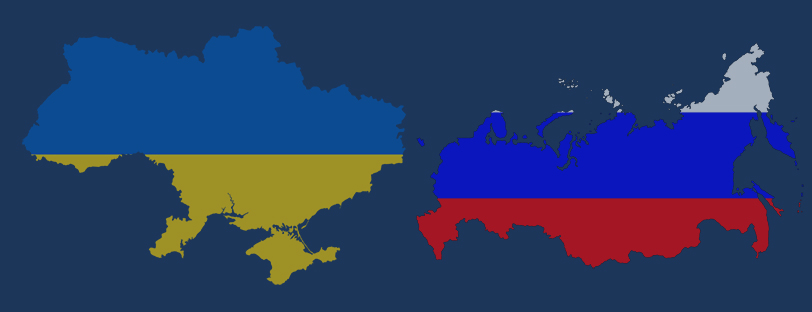The Russian/Ukrainian War is a humanitarian disaster. 10% of Ukraine’s population are refugees, and the numbers are climbing quickly. 25% of their population has been displaced. UNCESCO reported last month that already more than half of their children had been displaced. As tragic as the situation is, it could easily become vastly worse. The more the war continues, the more human casualties—including civilian massacres like Bucha and Irpen—will continue taking place.
It’s also a political and diplomatic disaster that has been building for a very long time. Politicians, legacy media, social media, and pundits in the West are fixated on punishing Putin for his “unprovoked” invasion. They accuse him of having expansionist plans that would threaten the EU and democratic neighbors. They ache for escalation, assuming Russia will capitulate because of strong Ukrainian resistance and economic sanctions. But they’re naïve, and they’re wrong!
Every conflict has two sides to the story. This conflict has been 30 years in the making, and it is complex. There’s more to it than what you are hearing in the news. It needs to be mediated now, before this “small” war turns into a much bigger one. Russia will destroy Ukraine rather than see it in the hands of NATO . . .whatever the cost. Here’s why:
In 1990, at the end of the Cold War, the final Treaty on Conventional Armed Forces in Europe (CFE) was signed. At the time, there was an understanding with the USSR that NATO would move “not one inch eastward”. By 2006, NATO had expanded into central Europe and had recruited most of the former Warsaw pact countries. NATO now had its sights on Georgia and Ukraine with a declared intent to make them NATO members. By 2007, Russia declared that Ukraine becoming a NATO member was an “Existential Threat”.
In 2014, Russian ally Ukrainian President Yanukovych was overthrown. Anti-Russia rhetoric increased. Without firing a shot, Russia annexed, Crimea, unarguably a national security asset that Russia simply could not lose. Rather than use the situation to develop a durable resolution to what was becoming a crisis, NATO and Ukraine doubled down. Ukraine cut off the water supply to Crimea, threatening Sebastopol and Russia’s Black Sea Fleet Base, and knocking their water reservoirs down to 7%, putting them in a critical state. Fighting has been going on in Eastern Ukraine between pro-Russian and pro-Western combatants ever since.
In 2019, Ukraine’s Verkhovna Rada (Supreme Council) voted to amend the constitution to state that Ukraine’s strategic objectives were “joining the European Union and NATO.” Currently, Ukraine is the only buffer between Russia and the NATO encroachment. If Ukraine joins NATO, Moscow would only be 800 miles from the NATO border. Russia feels threatened. Yet the West insists on accusing them of being aggressors. Based on what? We’re talking about a country with the GDP of New Jersey in a civil war with a country with the GDP of Nebraska. Make no mistake about it, this is a proxy war being promoted by the West, which has duped Zelensky into believing that they have his back, which they don’t. Yes, they’re providing the weapons that are keeping Ukraine in the fight. How long will that go on? How many people will die to “punish” Russia?
Then there’s the oil. Ukraine earns $1.2 billion annually from Russia for pipeline transit to Europe. Russia is building Nord Stream and South Stream pipelines with plans to shut down the Ukraine pipeline. And Ukraine’s oil and gas discoveries in the Black Sea Exclusive Development Zone threatens Russia’s hegemony. But that’s another story.
The bottom line is that this conflict is about security, economics of natural resources, water supply, national and international aspirations, historical grudges, ambitions, and corruptions.
The quickest way to end this war is for a non-NATO (neutral) mediator to step in. Let’s set aside anger, fear and biases and view the issues around this conflict critically and objectively. Let’s have a useful dialogue, stop all the name calling, and all the bravado. We need to end this war sooner than later before this small war turns into a much bigger one.

